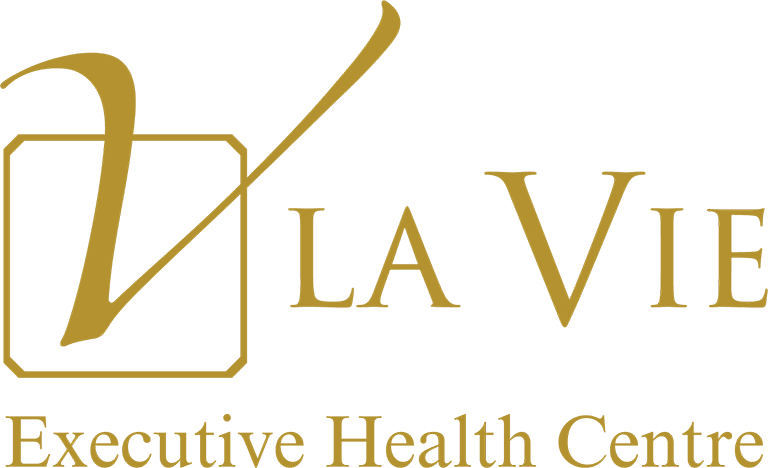- Home
- Locations
- For Individuals
- For Organizations
- CEO Health/Executive Assessment
- Independent Medical Assessments
- Employee Health
- Functional Abilities Evaluation Services
- Functional Medicine Evaluation (FME) Services
- Independent Medical Evaluation (IME) Services
- Job Site Assessment Services
- Labour Market Re-entry Assessment Service
- Neuropsychological Assessment Services
- Non-Medical Summary Services
- Physical Demands Analysis (PDA) Services
- Pre-Employment Medical Services
- Vocational and Employability Assessment Service
- For Diplomats
- About
- Contact
- Home
- Locations
- For Individuals
- For Organizations
- CEO Health/Executive Assessment
- Independent Medical Assessments
- Employee Health
- Functional Abilities Evaluation Services
- Functional Medicine Evaluation (FME) Services
- Independent Medical Evaluation (IME) Services
- Job Site Assessment Services
- Labour Market Re-entry Assessment Service
- Neuropsychological Assessment Services
- Non-Medical Summary Services
- Physical Demands Analysis (PDA) Services
- Pre-Employment Medical Services
- Vocational and Employability Assessment Service
- For Diplomats
- About
- Contact
- Home
- Locations
- For Individuals
- For Organizations
- CEO Health/Executive Assessment
- Independent Medical Assessments
- Employee Health
- Functional Abilities Evaluation Services
- Functional Medicine Evaluation (FME) Services
- Independent Medical Evaluation (IME) Services
- Job Site Assessment Services
- Labour Market Re-entry Assessment Service
- Neuropsychological Assessment Services
- Non-Medical Summary Services
- Physical Demands Analysis (PDA) Services
- Pre-Employment Medical Services
- Vocational and Employability Assessment Service
- For Diplomats
- About
- Contact
- Home
- Locations
- For Individuals
- For Organizations
- CEO Health/Executive Assessment
- Independent Medical Assessments
- Employee Health
- Functional Abilities Evaluation Services
- Functional Medicine Evaluation (FME) Services
- Independent Medical Evaluation (IME) Services
- Job Site Assessment Services
- Labour Market Re-entry Assessment Service
- Neuropsychological Assessment Services
- Non-Medical Summary Services
- Physical Demands Analysis (PDA) Services
- Pre-Employment Medical Services
- Vocational and Employability Assessment Service
- For Diplomats
- About
- Contact

Understanding Heart Disease Symptoms: What to Watch For and When to Act

Understanding Breast Cancer Risk: Prevention, Early Detection, and Treatment Options
August 27, 2024
The Future of Executive Health Assessments: What’s Next for Oakville’s Corporate Wellness Programs
September 24, 2024Heart disease is still one of the major causes of death worldwide, although many individuals are ignorant of its signs until it becomes a significant issue. Knowing what indicators to look for can mean the difference between timely action and a life-threatening emergency. At La Vie, we believe in providing you with the information you need to protect your health. In this article, we’ll look at common and lesser-known heart disease symptoms, risk factors, and the need of regular health screenings.
Common Symptoms of Heart Disease
While certain heart disease signs are well-known, others are more subtle. Here are the most common indications to look out for:
1. Chest pain or discomfort.
Chest pain, often known as a sense of pressure, squeezing, or fullness in the chest, is one of the most easily identifiable signs of heart disease. It could last for a few minutes or come and go. This form of pain might develop during physical activity or at rest.
2. Shortness of breath.
Difficulty breathing or shortness of breath may be a sign of heart disease, especially if it develops during previously tolerable tasks like ascending stairs or walking short distances.
3. Fatigue and Weakness.
Unusual weariness or weakness, especially in women, can be indicative of heart disease. If you are feeling overly weary for no apparent reason, your heart may be sending you a warning signal.
4. Pain in your neck, jaw, throat, upper abdomen, or back.
Heart disease can produce pain or discomfort in locations other than the chest, including the neck, mouth, throat, upper abdomen, and back. These symptoms are more common in women and can be misdiagnosed with other diseases.
5. An irregular heartbeat
An erratic heartbeat, often known as arrhythmia, may indicate a heart disease. If you feel palpitations, skipped beats, or an unusually high or sluggish heart rate, you should seek medical attention.
Lesser-Known Symptoms of Heart Disease
Not all heart disease symptoms are evident, such as chest pain. Some less well-known indications include:
– Nausea or Vomiting: Unexplained nausea, vomiting, or indigestion may be indications of a heart attack, particularly in women.
– Cold Sweats: Breaking out in a cold sweat without a clear cause, such as exercise or heat, may signal heart difficulties.
– Lightheadedness or Dizziness: Feeling faint, dizzy, or light-headed can be an indication of heart disease, especially when combined with other symptoms such as chest discomfort or shortness of breath.
– Swelling in the Legs, Ankles, or Feet: Swelling, also known as edema, can develop when the heart does not pump blood efficiently. This might cause fluid to accumulate in the legs, ankles, and feet.
Heart Disease Risk Factors: Who is at Risk?
Certain factors can increase the likelihood of developing heart disease. Some of these risk factors include:
– High blood pressure: A major risk factor for heart disease. Blood pressure should be monitored on a regular basis.
– High Cholesterol Levels: High cholesterol can cause plaque accumulation in the arteries, increasing the risk of heart disease.
– Diabetes: People with diabetes are at a higher risk because high blood sugar levels can cause damage to blood vessels and nerves that control the heart.
– Family History: Having a family history of heart disease increases your risk. It is critical to be aware of your family’s medical history and discuss it with your physician.
– Smoking: It is a significant risk factor for blood vessel damage and plaque formation in the arteries.
– Lack of Physical Activity: Regular exercise promotes a healthy weight, lowers blood pressure, and lowers cholesterol.
When to Act: Early Detection and Prevention
Understanding the signs and risk factors for heart disease is critical, but understanding when to act is equally important. If you encounter any of the symptoms listed above, particularly if they are new, severe, or persistent, seek medical assistance right once. Remember, not all heart disorders have obvious warning symptoms, so pay attention to even little changes in your health.
Why a Comprehensive Health Assessment is Key
Regular health exams are critical for early identification of heart disease and successful risk factor management. At La Vie, we provide full body checkups in Toronto and full health checkups in Toronto that are meant to thoroughly analyze your cardiovascular health. Our health evaluations include tests and screenings designed to detect heart disease symptoms and risk factors early, allowing for timely intervention and management.
La Vie Executive Health Centre: Your Trusted Private Clinic in Toronto
At La Vie, a top private clinic in Toronto, we are dedicated to providing tailored care with an emphasis on prevention and early detection. Our comprehensive health assessments are intended to help you remain on top of your cardiovascular health and achieve peace of mind. Whether you need a full body checkup in Toronto or a specific screening for heart health, we’re here to help you every step of the way.
Take Charge of Your Heart Health Today
Don’t wait until symptoms grow serious. Schedule your full body health assessment at La Vie today and take the first step toward a healthier heart. Early detection can make all the difference, and our devoted team of healthcare specialists is here to help you on your path to better heart health.






